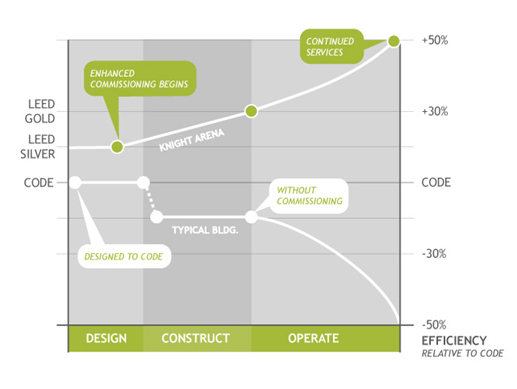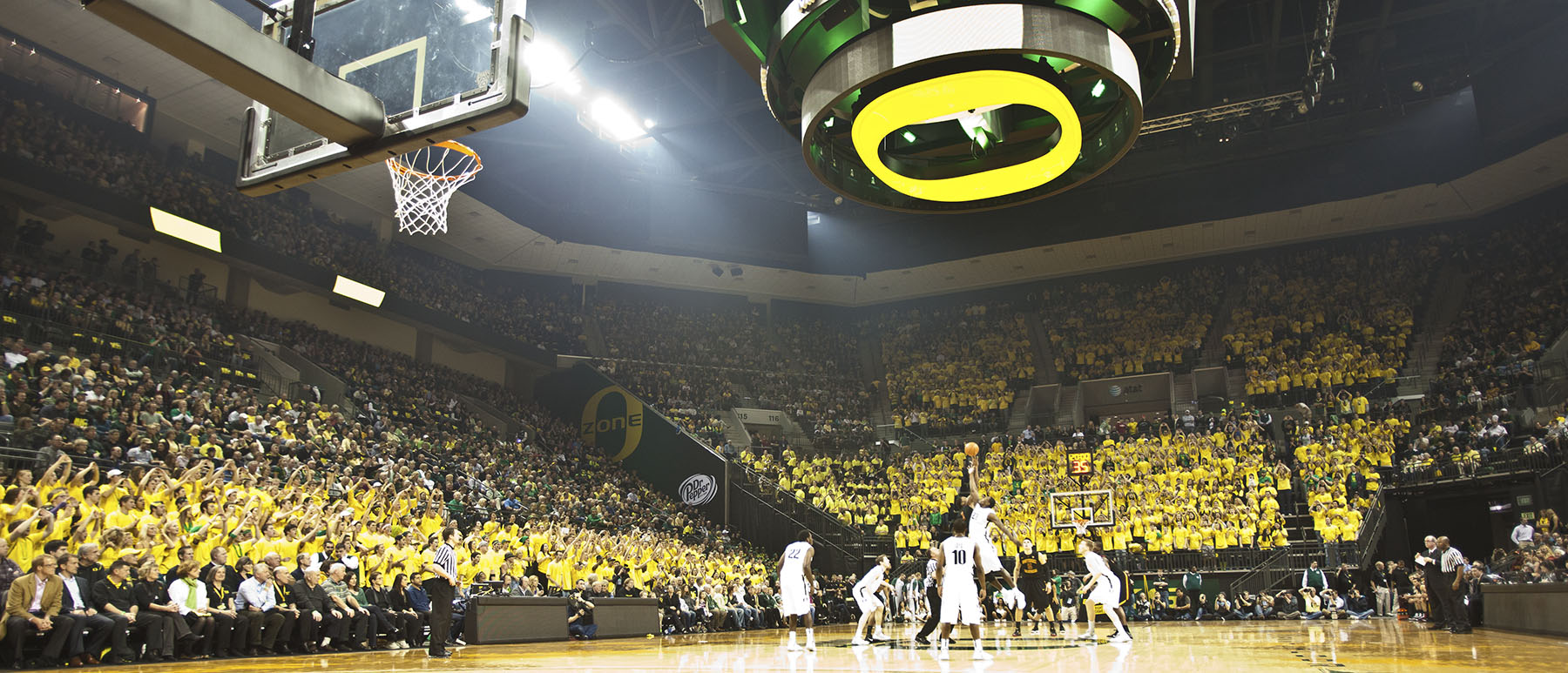Two years ago, we wrote about Glumac’s Commissioning work at the University of Oregon Duck’s new 12,541-seat Matthew Knight Sports Arena in Eugene, Oregon. The project was designed by a world-class architectural and engineering team. While most sports facilities are just designed to code, this facility was shooting for LEED® Silver and Glumac encouraged the team to actually achieve LEED Gold. Glumac commissioned the project throughout construction and made sure systems and equipment passed rigorous functional tests so the arena would be handed over to the University in fully operational condition. When the University took occupancy of Matthew Knight Arena, it wasn’t just “good,” it was already “great!” At that time, we said “Glumac continues to work with the University of Oregon monitoring the Arena’s energy use – improving operability and reducing maintenance costs.” This is still true today and the results are still “great.”
We all know how the story too often goes: the moment the owner moves in, problems begin. Spaces seem uncomfortably hot or cold to one occupant or another. Complaints are made to the facilities department. Programmed thermostats and controls are adjusted up or down to quiet the discontent. Equipment fails for one unforeseen reason or another. Individual items are altered, repaired or replaced. Building operations manuals become outdated with every tweak, adjustment, and change. Facilities personnel can’t help losing sight of the facility’s original intended operations protocol. Little by little, the facility’s energy efficiency begins to decline. Right?

No way! In the case of Matthew Knight Arena, the opposite story has occurred. Today, rather than saving 30% more on energy costs than the typical arena on a per-square-foot basis as was the University’s original intent, the Matthew Knight Arena is saving more than 50% on energy costs. Continuing services by Glumac have helped make the difference.
Boosting the Arena’s operations effectiveness, Glumac commissioning agents Kevin Dow and Ed Helbig have remained available on-campus and on-call for the past two years, providing ongoing commissioning services. This includes fine-tuning systems and helping the arena run smoothly in any condition including unusual weather and occupancy situations. Kevin gives significant credit to the university facility operations team’s proactive programming and involvement. Detailed knowledge of the building systems is also critical, and University of Oregon personnel excel in this knowledge.
The University’s operations team was beside me during construction, learning as the new equipment was started-up and tested for functionality. At project completion, they were trained on the building’s equipment by the contractors and equipment manufacturers, and they developed an understanding and appreciation for the facility systems manual we assembled for them. All of the training was videotaped so future facilities personnel also benefit from the training.
– Kevin Dow, Commissioning Agent, Glumac
Continued Services provided by Glumac have included:
- Troubleshooting and answering facility staff questions
- Monitoring energy use
- Systems testing and modification for unusual circumstances
- Controls refinement
- Commissioning of equipment and systems added post construction, such as replacement controllers
The Matthew Knight Arena project’s three-pronged attack on energy consumption includes: 1. Great design targeting LEED Silver certification; 2. Enhanced commissioning coaxing the design and construction even further to achieve LEED Gold certification; 3. Ongoing commissioning to ensure the arena is constantly operating as intended, while utilizing the least possible energy. With this equation, the Matthew Knight Arena’s energy consumption is far lower than typical, with energy cost savings that have surpassed the University of Oregon’s expectations.

